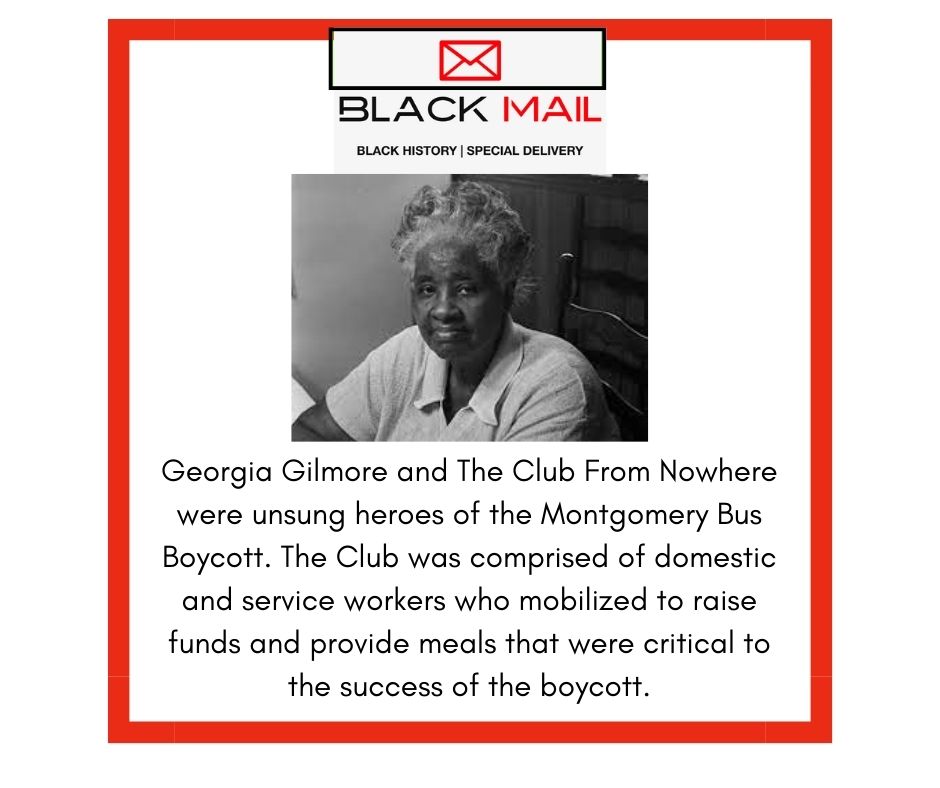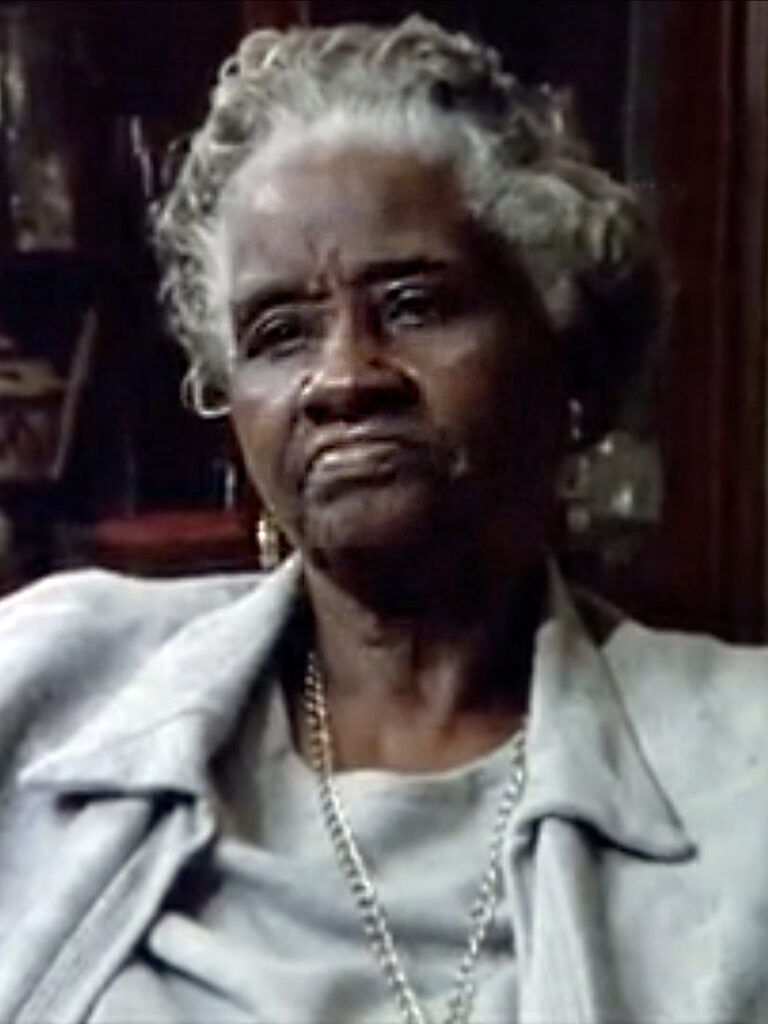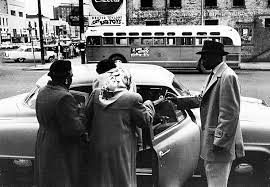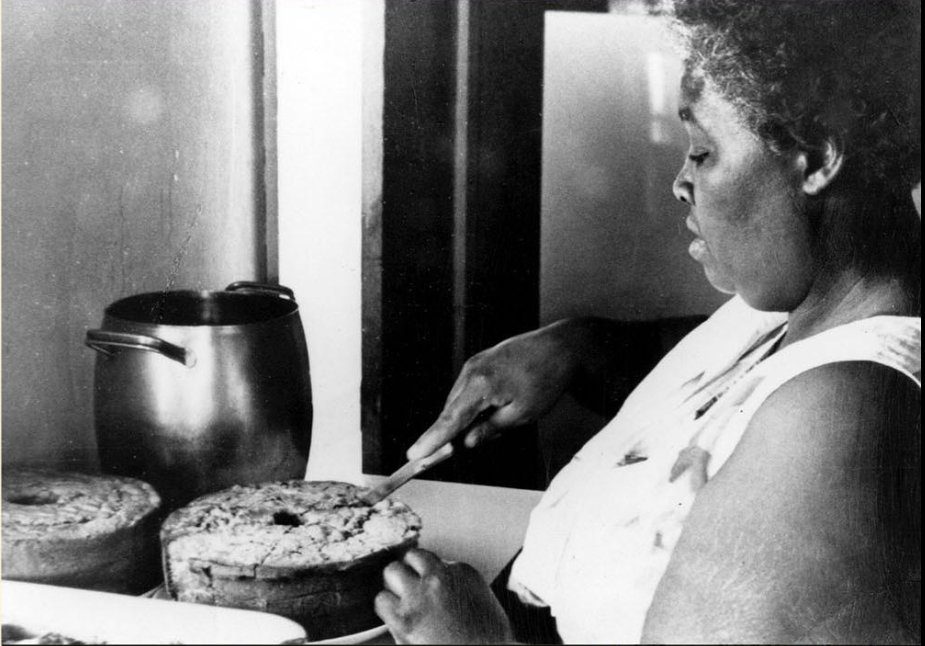Welcome to Black Mail, where we bring you Black History—Special Delivery!
Throughout the Montgomery Bus Boycott, there was an untold number of unsung heroes who worked tirelessly. In today’s post, we honor one of these unsung heroes, Georgia Gilmore. Using her culinary skills, she became a community organizer and change agent.
The Montgomery Bus Boycott was an expensive and complex undertaking that required both coordination and cash. The coordination included fundraising, marketing, communications, legal counsel, and security, all supporting a network of volunteers and vehicles. Cars were rented and borrowed. Funds were also needed for gas and vehicle insurance as well.
“The boycott organized an efficient carpool system to replace the buses. At one time, 325 private cars gave free rides. City churches provided twenty-two station wagons that operated hourly with drivers furnished by the churches. There were forty-three dispatch stations and forty-two pick-up stations, and scheduled service from 5:30 a.m. to 12:30 a.m. About 30,000 people were transported daily to and from work.”
Library of congress
Gilmore founded the “Club From Nowhere” to support the bus boycott. The group was comprised of domestic workers, service workers, and cooks who all volunteered their time to support the boycott. The group also went door-to-door selling sandwiches, cakes, and pies and collecting donations. The group’s name was meant to shield its membership by providing anonymity. When the group made financial reports to the Montgomery Improvement Association, the group’s contributions were recorded as coming from “nowhere.” Only Gilmore knew the amount, source, and type of donations. Donations came from both white and black community members.
Gilmore also knew from personal experience that openly supporting the boycott could result in being fired. She lost her job at the National Lunch Counter when her boss became aware that she was supporting the boycott. Unemployed yet undeterred, she continued her efforts. Knowing her exceptional culinary skills, Dr. Martin Luther King encouraged her to cook out of her home. He also provided financial assistance so she could upgrade her kitchen to meet city codes.
King visited Gilmore’s home often and affectionately referred to her as Tiny. He often brought guests with him and held meetings in Gilmore’s home. Gilmore reported serving well-known leaders such as Morris Dees of the Southern Poverty Law Center, Lyndon Johnson, and John Kennedy. In reflecting on Georgia Gilmore’s contributions to the boycott, Pastor Thomas E. Jordan shared, “You know, Martin Luther King often talked about the ground crew, the unknown people who work to keep the plane in the air….had it not been for people like Georgia Gilmore, Martin Luther King Jr. would not have been who he was.”
Every time I take a flight, I am always mindful of the many people who make a successful journey possible – the known pilots and the unknown ground crew……So you honor the dedicated pilots of our struggle who have sat at the controls as the freedom movement soared into orbit……You honor the ground crew without whose labor and sacrifices the jet flights to freedom could never have left the earth. Most of these people will never make the headline and their names will not appear in Who’s Who.
rev. dr. martin luther king, jr.
Jordan also reflected that Gilmore was a kind woman. But she was not to be crossed. He recalled a time when she beat up a white grocery store owner who had mistreated one of her children. According to Jordan, Gilmore marched down to the grocery store and “wrung him out.”
Check out this interview to hear from Gilmore in her own words. Georgia Gilmore died in 1990 at the age of 69.
Another installment of melanated mail has been delivered. Ponder, reflect, and pass it on.
Join the Black Mail Community. Subscribe today!





